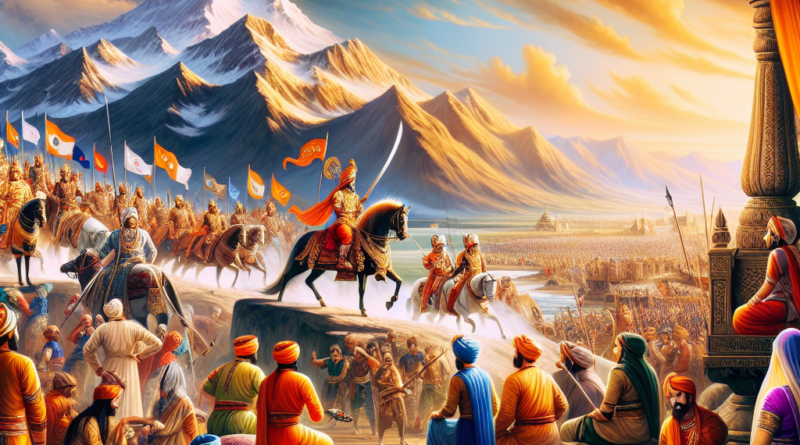Timeless Tales: A Journey Through Indian History
The Rich Tapestry of Indian History: Exploring Hindu and Indian Cultural Significance
Introduction
India, known for its rich history and vibrant culture, is a land where the past seamlessly blends with the present. At the heart of Indian history lies Hinduism, one of the oldest religions in the world, which has shaped the country’s cultural, social, and philosophical landscape for millennia. In this article, we delve into the historical context and contemporary relevance of Hinduism and Indian culture, exploring the significant impact they have had on the country and its people.
Historical Context
The roots of Hinduism can be traced back to the ancient Indus Valley civilization, which flourished around 3300–1300 BCE. The civilization, known for its advanced urban planning, trade networks, and artistic achievements, laid the foundation for the cultural ethos that would come to define India. The Vedas, a collection of ancient scriptures, form the basis of Hindu religious thought and philosophy. They were composed between 1500 and 500 BCE and provide insights into early Indian society, rituals, and spiritual beliefs.
Journey Through Indian History
The period of the Mauryan Empire (322–185 BCE) under Emperor Ashoka marked a significant turning point in Indian history. Ashoka’s embrace of Buddhism and his promotion of religious tolerance and social welfare policies had a lasting impact on Indian society. The Gupta Empire (320–550 CE) is often referred to as the “Golden Age” of Indian civilization, characterized by advancements in art, science, and literature. It was during this period that classical Hindu texts such as the Mahabharata and Ramayana were written, shaping the cultural landscape of India.
The medieval period saw the rise of Islamic rule in India, leading to a fusion of Hindu and Islamic artistic and architectural styles. The Mughal Empire (1526–1857) under rulers like Akbar promoted a syncretic culture that blended elements of Hinduism and Islam. The British colonial rule in India from the 18th to the 20th century brought about significant social and political changes, leading to the Indian independence movement and the eventual partition of the country in 1947.
Contemporary Relevance
Today, Hinduism continues to be a dominant cultural force in India, influencing art, music, dance, literature, and everyday life. Festivals like Diwali, Holi, and Navaratri are celebrated with great fervor across the country, bringing people together in joy and camaraderie. Temples, ashrams, and pilgrimage sites hold a special place in the hearts of millions of Hindus, serving as centers of spirituality and community bonding.
Yoga and meditation, which have their roots in Hindu philosophy, have gained immense popularity worldwide for their physical, mental, and spiritual benefits. Practices like Ayurveda, the traditional system of medicine, are being increasingly recognized for their holistic approach to health and well-being. The concept of karma, dharma, and reincarnation, central tenets of Hinduism, continue to shape the moral and ethical values of Indian society.
Indian classical music and dance forms like Bharatanatyam, Kathak, and Carnatic music have a dedicated following both in India and abroad. These art forms, with their intricate rhythms, melodies, and storytelling, reflect the deep spiritual and cultural heritage of India. Indian literature, from the epics of the Ramayana and Mahabharata to the works of Rabindranath Tagore and Vikram Seth, continues to inspire readers with its timeless wisdom and beauty.
In the realm of architecture, ancient temples like the Khajuraho and Konark temples stand as testaments to the architectural brilliance of ancient India. The intricate carvings, sculptures, and structural design of these temples showcase the deep spiritual symbolism and artistic mastery of their creators. Modern Indian architecture, with its blend of traditional and contemporary styles, reflects the country’s dynamic cultural landscape.
Conclusion
Hinduism and Indian culture have stood the test of time, evolving and adapting to changing social, political, and religious landscapes. The richness and diversity of Indian history continue to inspire people around the world, offering a glimpse into a civilization that celebrates unity in diversity, spirituality, and creativity. As we navigate the complexities of the modern world, the timeless wisdom of Hindu philosophy and the vibrancy of Indian culture serve as guiding lights, reminding us of the enduring legacy of India’s past.

